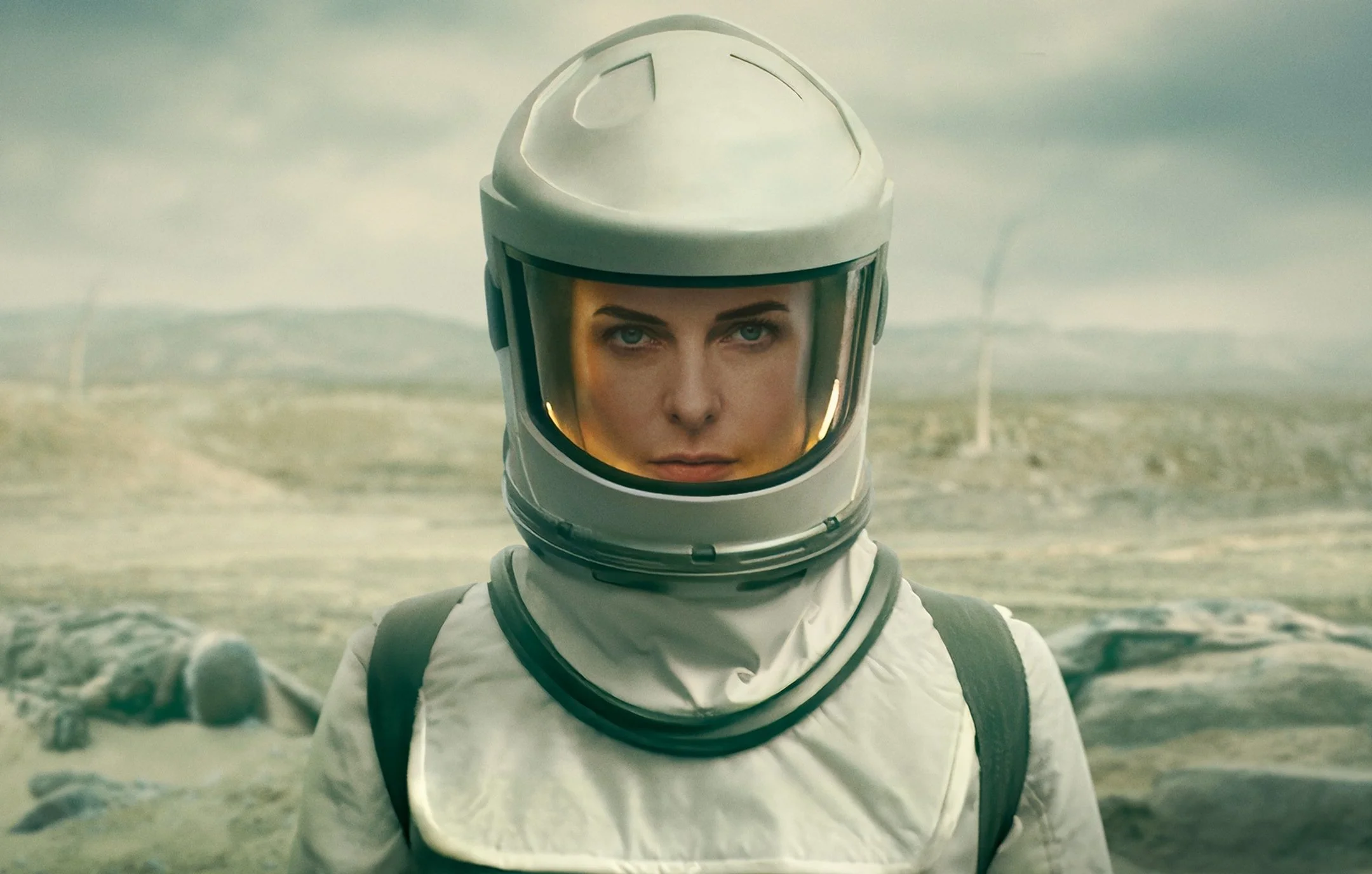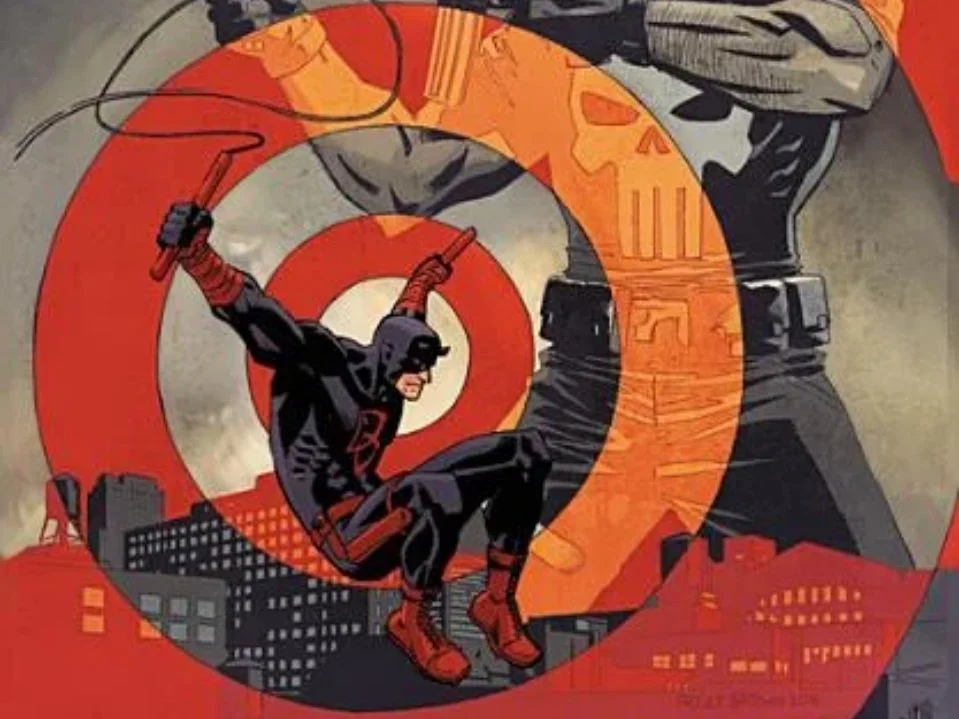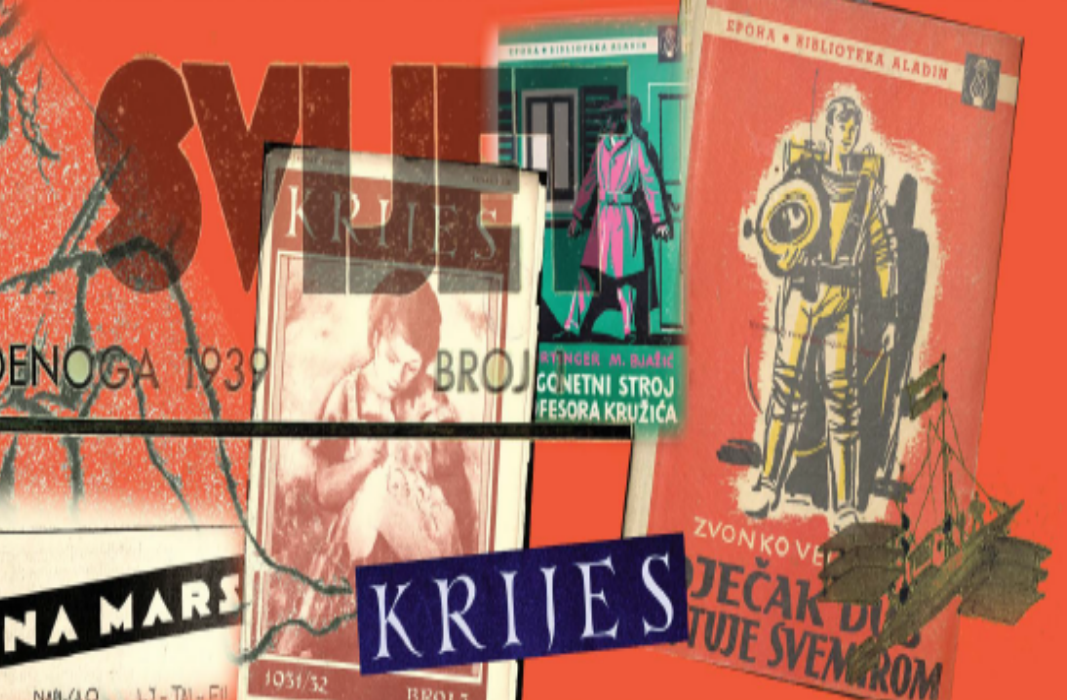Welcome to My Scholarship Blog!
Hi everyone,
Thank you for checking out the blog! The purpose of this blog is to update you on my scholarship. Updates will come in the form of short posts per scholarly product, meant to give you a sense of its aim(s) and core idea(s). When relevant, links to either a source or its reference will be provided. For topical shortcuts, check out the tags below.
Daredevil: Born Again and the Paradox of Vigilantism (2025)
Philosopher Paul Ricoeur, speaking on justice, notes that while injustice is ubiquitous throughout society, whereas how to best address it is not. Or, put another way, it is easier to identify what is morally wrong in social relations than to ensure those relations are morally right. Vigilantes exemplify this discrepancy, and one notable example is Daredevil: Born Again.
Silo and the Nature of Belief (2025)
As sheriff, Paul Billings is responsible for maintaining social order. Similarly Saul—as a sanctioned persecutor—can also be understood as trying to maintain a sense of social order by punishing those spreading ‘radical’ beliefs. Just as Billings’ questioning of authority alters his worldview, Saul’s was altered while traveling to Damascus. These two figures and their stories invite us to consider three types of beliefs that inform how we treat each other: (meta) physical beliefs, social beliefs, and psychological beliefs.
The Penguin, Morality, and Means-Ends Relations (2025)
By broadly situating Oz’s transition from a young aspiring criminal to a ruthless crime boss within a developmental context, The Penguin…invites us to consider the role of means-ends relations in the morally-relevant actions committed in the show, and how this relationship may inform some of the decisions we may make in our own lives.
Superhero Justice (2025)
The findings suggesting that people understand morally relevant actions involving antagonists differently than those involving others–coupled with the fact that various forms of this distinction feature heavily in superhero narratives (e.g., hero-villain, criminal-victim, innocent-guilty, malevolent force-unwitting host)–point to a potential area of scholarly inquiry when thinking about what it means to treat others fairly across different contexts.
U.S. and Indian Adults’ Perceptions of Superhero and Supervillain Moral Transgressions (2024)
Given the dearth of research on superheroes and supervillains, questions concerning the extent and nature of (apparent) normative and contextual features that influence people’s understanding of these characters are open ones. Are evaluations of certain acts committed by superheroes and supervillains more prone to certain localized cultural norms and understandings than others? What about attributions of certain traits?
Social Superheroes (2024)
Constructivist analyses of Black Panther, Luke Cage, and Bishop help reveal some of the ways superheroes, despite their consistent motivations and frequent predictability (e.g., in terms of the motivations of many of their villains, use of violence, etc.), are both socially responsive to and adaptive within their differing social contexts. They are embedded in varied social interactions and relationships–an embeddedness that has implications for both pedagogy and scholarship.
Lucas Bishop (2024)
By trying to understand the nature of the decisions made by such a complex and multifaceted character (the X-Man Bishop)—one who, despite occupying various positions within and outside of the law across dystopian and non-dystopian social arrangements, consistently fights to alter them in the face of injustice—we may come to a slightly better understanding of ourselves.
University of Europe for Applied Sciences (2024)
Martin, J. (2024, April). Something from Nothing?: Joker and Moral Development. Guest lecturer for
Comparative Cultural Studies 2: Seminar 120 IBM at University of Europe for Applied Sciences, Berlin, Germany (Pre-Recorded on April 5th, 2024).
Superheroes and Children’s Moral Understanding (2023)
The potential benefits of using superhero media as a context to study older children’s more interpretive or constructivist view of the mind may include familiar characters, the consistency of morally relevant considerations, and the frequent comparison of superheroes and supervillains across contexts that parallel those within children’s social worlds.
Centenary University (2023)
Martin, J. (2023, October). Toward a Developmental Analysis of Superhero Media: Lessons from Wakanda. Guest lecturer for English 1105: Superheroes and Society at Centenary University, Hackettstown, NJ (Pre-Recorded on September 26th, 2023)
Relevant publication(s): Black Panther (2021), Comics and Citizenship (2023), and Social Superheroes (2024)
Luke Cage (2023)
Insofar public corruption, crime, and institutional distrust inform many Harlemites’ understanding of Harlem and their place in it, Luke Cage’s superhero mission needs to be understood as coterminous with Harlemites’ experiences, behaviors, and beliefs concerning these matters.
Batman’s Villains and Villainesses (2023)
After reading Arkham’s Souls, we hope you take away three broad implications….One pertains to the importance of knowledge from various disciplines combining to create a whole greater than the sum of its parts. The second concerns the potential pedagogical and scholarly opportunities such an analysis affords and the interdisciplinary collaborations it can engender. Lastly, we hope that the volume encourages thoughtful, good-faith reflections and discussions concerning what it means to live meaningfully in a society with others.
Mr. Freeze (2023)
Both of these features [separating moral from nonmoral understandings of social interactions and applying those understandings to complex situations]...are suggested through Mr. Freeze’s motivations to use cryogenics to save and improve people’s lives, his sense of unjust treatment, his sometimes selective use of harm, and his expressions of vulnerability….Therefore…we can learn a little something about ourselves through villains like Mr. Freeze.
American Sociological Association (2023)
Martin, J. F., & Strong, M. T. (2023, August). Dimensions and decisions: Time travel, alternate realities, and moral judgments. Paper presented at the one-hundred eighteenth annual meeting of the American Sociological Association [Sociology of Cultures Roundtables; I did not attend], Philadelphia, P.A.
Relevant publication(s): Agents of S.H.I.E.L.D. and Moral Judgments (In Progress)
Eastern Washington University (2020, 2023)
Martin, J. (2023, April). Toward a Developmental Analysis of Superhero Media: Lessons from Wakanda. Guest lecturer for Public Philosophy Night at the Spokane Public Library, hosted by Eastern Washington University, Spokane, WA.
Relevant publication(s): Black Panther (2021), Comics and Citizenship (2023), and Social Superheroes (2024)
Comics and Citizenship (2023)
These features are explored through analyses rooted in three distinct disciplines and applied to three superheroes whose narratives are often rooted in the communities in which they live: sociology (Daredevil and Hell’s Kitchen), psychology (Black Panther and Wakanda), and citizenship education (Batman and Gotham).
The Walking Dead (2022)
Van der Ven suggests the role of subjective interpretations should be accounted for when thinking about how people may experience morally laden situations and the conflicting moral interpretations that may result….Applied to TWD, it is possible for individuals who vary in their assumptions or beliefs about the post-zombie world to interpret the same morally laden act differently.
Popular Culture Association (2019, 2021, 2022)
Martin, J. (2019, April). Wakanda’s wisdom: Agreement, disagreement, and the complexities of social life. Paper presented at the forty-ninth annual meeting of the Popular Culture Association/American Culture Association, Washington, D.C.
Relevant publication(s): Black Panther and Development (2019), Black Panther and Civics (2021)
Letizia, A., & Martin, J. (2021, June). From super to civil: What Marvel’s Civil War conflict can teach us about society and freedom. Paper presented at the fiftieth annual meeting of the Popular Culture Association/American Culture Association, Online.
Martin, J. (2022, April). Cold-Hearted: An analysis of Mr. Freeze through the lens of moral development. Paper presented at the fifty-first annual meeting of the Popular Culture Association/American Culture Association, Online.
Relevant publication(s): Mr. Freeze and Moral Development (2023)
Association for Moral Education (2007, 2019, 2020, 2021)
Martin, J. (2019, November). Superheroes, society, and…social studies?: Superhero narratives and their potential to facilitate socio-moral discourse. Paper presented at the forty-fifth annual meeting of the Association for Moral Education, Seattle, WA.
Relevant publication(s): Black Panther and Civics (2021), Comics and Citizenship (2023), and Luke Cage and Civil Discourse (In Progress)
Capes, Conflict, and Co-Viewing (2021)
These discussions may stimulate children’s understanding of the events observed in superhero narratives and conceptual associations between these fictional events and everyday events they experience or witness.




















